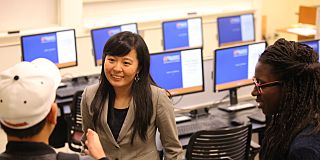Module 3 equips you with the skills to transform enterprise operations using analytics, AI, and cutting-edge digital technologies. Spanning theory, hands-on tools, and real-world applications, this module empowers IT leaders to extract value from data, drive innovation, and shape the technologies of tomorrow.
By completing Module 3, you will be able to:
- Design and interpret analytics and AI solutions tailored to business needs
- Manage analytics and AI projects with discipline and ROI focus
- Evaluate and apply emerging digital technologies for innovation
- Collaborate effectively to create viable digital solutions
- Champion digital innovation with clarity, strategy, and impact





